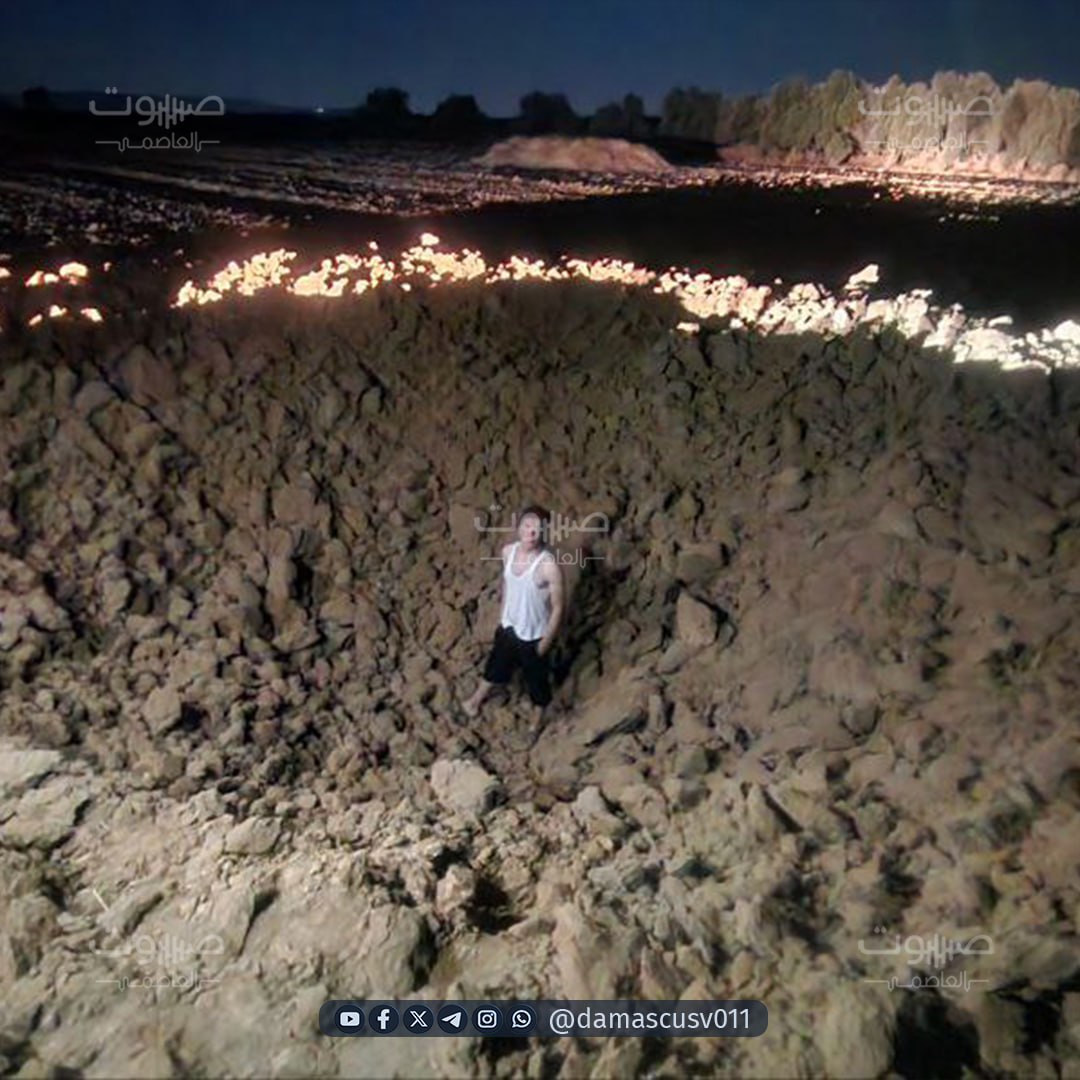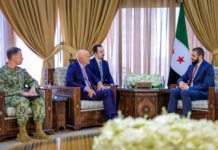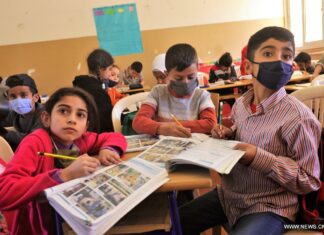
As tensions between Israel and Iran erupt into open confrontation, Syria once again finds itself unwillingly cast as the battleground for foreign powers. Over the past days, southern Syrian towns have been rocked by missile debris, drone interceptions, and airstrikes, further endangering a civilian population already exhausted by 14 years of war and occupation.
In Daraa and Quneitra governorates, Israeli warplanes have intercepted at least five Iranian drones and multiple missiles. The Israeli military claims the attacks are preemptive strikes against Iranian positions, while both Iran and Israel use Syrian airspace for their attacks. Syrian civilians, however, are in every increasing danger of becoming collateral in the escalating exchanges.
“I heard a terrifying sound followed by a strong shaking, and then we saw clouds of smoke,” Umm Khalid, told Syria TV. A farmer from the village of Rafid, she says Israeli defenses shot down a drone nearby. Fires scorched her family’s wheat and fruit fields. “All we ask is to live in safety, far from these conflicts in which we have no stake.”
The ongoing conflict also disrupts essential sectors like agriculture. Fires caused by falling debris and have already destroyed crops during a critical harvest season. Civil Defense teams, deployed across northern Syria in Tal Abyad and Ras al-Ain, are working around the clock to protect farmland. “Protecting agricultural crops is a national priority,” said the Ministry of Emergency and Disaster Management, which is coordinating with local authorities.
Twice the Victim
Since 2011, Syria has been both a strategic ally and battleground for Iran, which had occupied and exploited many parts of the country under the Assad regime. Israel, in turn, has repeatedly targeted Iranian positions on Syrian soil, claiming self-defense, and has continued airstrikes and occupation since Assad’s fall. This dynamic has left Syria’s sovereignty compromised and its population vulnerable.
Tom Barrack, US Special Envoy to Syria, condemned Iran’s role, stating on Saturday that “the brutal killings committed by the Iranian Revolutionary Guards in Syria leave a scar on the forehead of humanity.” He urged a return to diplomacy, invoking an Umayyad proverb emphasizing restraint and dialogue. Meanwhile, global powers watch warily. German Foreign Minister Johann Wadephul canceled his Syrian visit due to fears of escalation.
A Nation Once Again at Risk
Syrians now face the renewed risk of becoming a proxy battleground in a conflict that threatens to spiral beyond their borders. Syrian Minister of Emergency and Disaster Management Raed al-Saleh urged civilians to stay indoors and avoid contact with debris. “Do not touch foreign objects,” he warned, highlighting the danger of unexploded ordnance.
With no resolution in sight and diplomacy faltering, Syria remains trapped—both literally and symbolically—between two hostile forces, its people forced to navigate the fallout of a conflict they neither started nor control.








